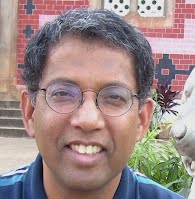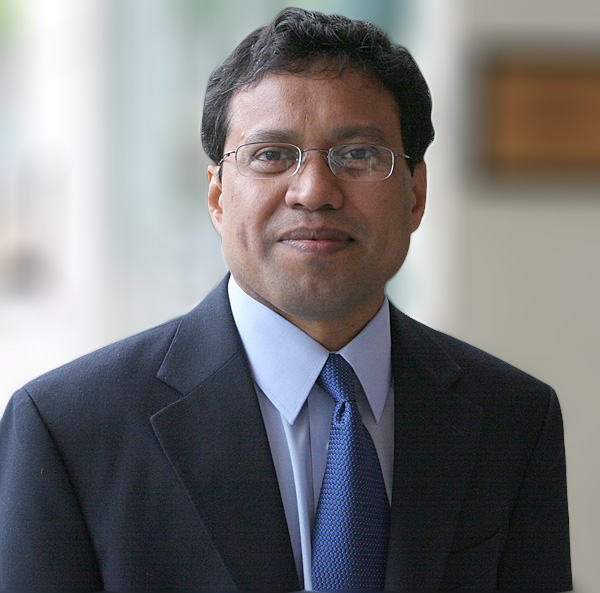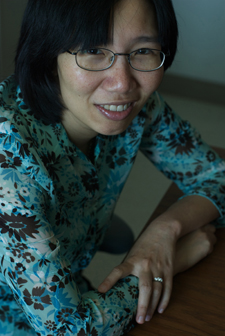People
FACULTY

Biswanath Mukherjee
Biswanath Mukherjee is a Distinguished Professor at University of California, Davis, where he was Chairman of Computer Science during 1997-2000. He received the BTech degree from Indian Institute of Technology, Kharagpur (1980) and PhD from University of Washington, Seattle (1987). He was General Co-Chair of the IEEE/OSA Optical Fiber Communications (OFC) Conference 2011, Technical Program Co-Chair of OFC 2009, and Technical Program Chair of the IEEE INFOCOM 1996 conference. He is Editor of Springer's Optical Networks Book Series. He has served on eight journal editorial boards, most notably IEEE/ACM Transactions on Networking and IEEE Network. He has supervised over 50 PhDs to completion and currently mentors a dozen advisees, mainly PhD students. He is co-winner of Optical Networking Symposium Best Paper Awards at IEEE Globecom 2007 and 2008. He is author of the graduate-level textbook Optical WDM Networks (Springer, January 2006). He served a 5-year term on Board of Directors of IPLocks, a Silicon Valley startup company. He has served on Technical Advisory Board of several startup companies. He is an IEEE Fellow.
Professor Mukherjee is conducting research in the areas of lightwave networks (where the goal is to develop novel architectures, protocols, and algorithms for the next generation of high-speed networks that can exploit the characteristics of emerging WDM optical technology), network intrusion detection (where the goal is to detect network software vulnerabilities and network attacks in real time), and wireless networks (including sensor networks).
Visit Prof. Mukherjee's personal webpage

Charles U. Martel
Professor Martel is Professor Emeritus in the UC Davis Computer Science department.
Professor Martel's main research interests are in the design and analysis of computer algorithms, with an emphasis on the effective use of high performance processors. Currently, he is involved in several projects including algorithms for secure data republication; analyzing network vulnerability; designing efficient data structures; designing algorithms tuned to exploit architectural features.
Visit Prof. Martel's personal webpage

Dipak Ghosal
Professor Ghosal's primary research interests are in the areas of high-speed and wireless networks with particular emphasis on the impact of new technologies on the network and higher layer protocols and applications. He is also interested in the application of parallel architectures for protocol processing in high-speed networks and in the application of distributed computing principles in the design of next generation network architectures and server technologies. Professor Ghosal received an NSF CAREER Award in 1997 for his development plan for Research and Education in High Speed Networks. He is a member of IEEE.
Visit Prof. Ghosal's personal webpage

Prasant Mohapatra
Professor Mohapatra's research interests are in the areas of wireless networks, sensor networks, Internet protocols and QoS. He has published numerous papers on these topics in various competitive conferences and reputed journals. His research has been funded by the National Science Foundation, Intel Corporation, Panasonic Technologies, Siemens, Hewlett Packard, Rockwell International, and EMC Corporation. He has also held various positions at Iowa State University, Michigan State University, Intel Corporation, Panasonic Technologies, Institute of Infocomm Research, Singapore, and the National ICT, Australia. Professor Mohapatra was/is on the editorial boards of the IEEE Transactions on Computers, ACM/Springer Wireless Networks (WINET), and Ad hoc Networks Journal. He has served on numerous technical program committees for international conferences, and served on several panels. He was the Program Vice-Chair of INFOCOM 2004 and MASS 2004, and the Program Co-Chair of the First IEEE International Conference on Sensor and Ad Hoc Communications and Networks (SECON-2004).
Visit Prof. Mohapatra's personal webpage

Chen-Nee Chuah
Professor Chen-Nee Chuah explores novel network architectures, protocols, and algorithms that ensure reliable, secure, and efficient operation of large-scale computer networks. Her approach is driven by analysis of real Internet traffic, network structures, and control-plane dynamics using massive sets of measurement data obtained from various sources (e.g., IP backbone, enterprise networks, and end hosts) and across different protocol layers. She received an NSF CAREER award to study failure characteristics and stability for wide-area Internet routing (both intra- and inter-domain) and to design new fault restoration and traffic engineering solutions. She is also interested in studying interactions between different network entities and/or across multiple protocol layers. This includes work on modeling the race conditions between overlay- and IP-layer route control mechanisms, and validating the configurations of distributed firewalls.
One major theme of her research is the pursuit of a versatile, programmable, and scalable measurement architecture that is equipped with a sufficient set of primitives to meet the diverse needs of future network services and applications. Such built-in measurement capabilities are important for supporting a wide range of network management tasks, from resource provisioning to anomaly detection. Her research leverages recent advances in sampling theory, signal processing, data streaming, and reconfigurable hardware platforms. For example, she leads an NSF project on improving sampling and streaming methods to accurately track traffic footprints critical for detecting network-wide anomalies. Efforts are underway to leverage parallelism available in multi-core processors to enable dynamically-programmable high-speed traffic measurement tasks.
Professor Chuah is also active in collaborative, interdisciplinary research targeting the interface between networking technologies and emerging societal-scale applications. This work ranges from using vehicular ad-hoc networks to support intelligent transportation system (ITS) to the reliable transport of high-fidelity media to large numbers of wireless users.
Visit Prof. Chuah's personal webpage
-top-


